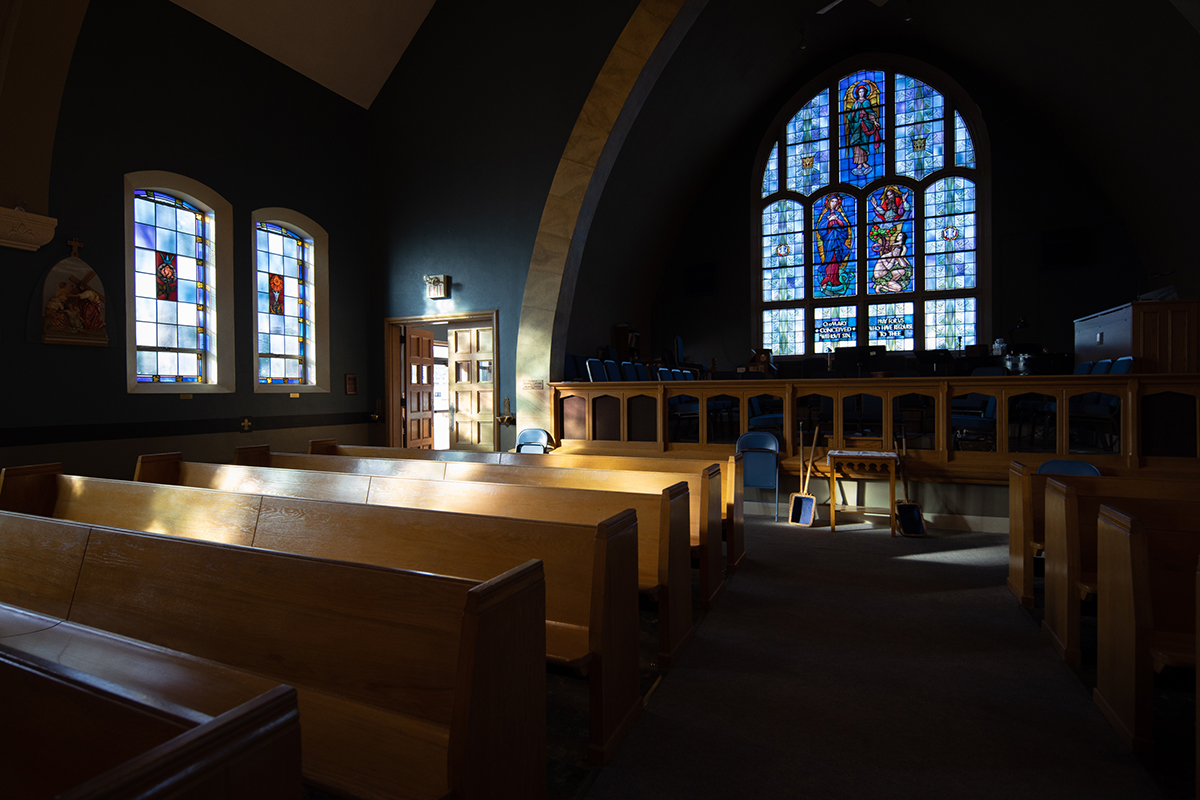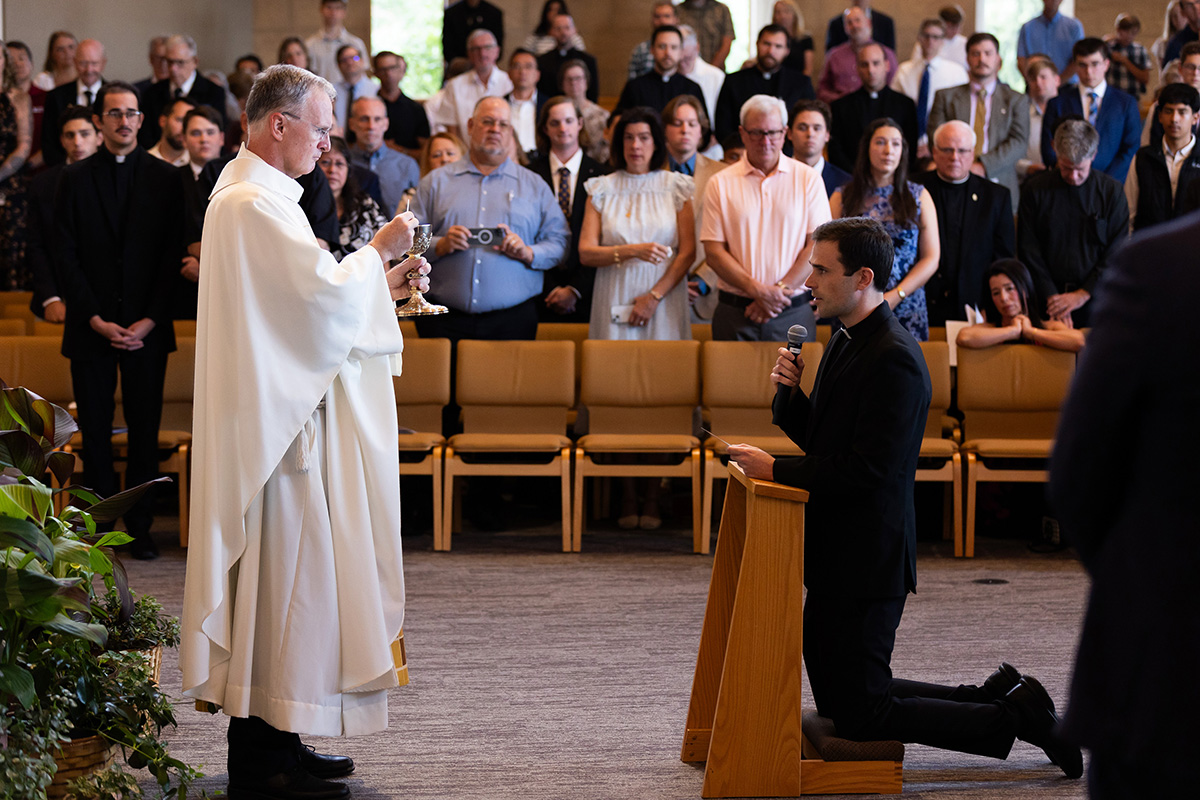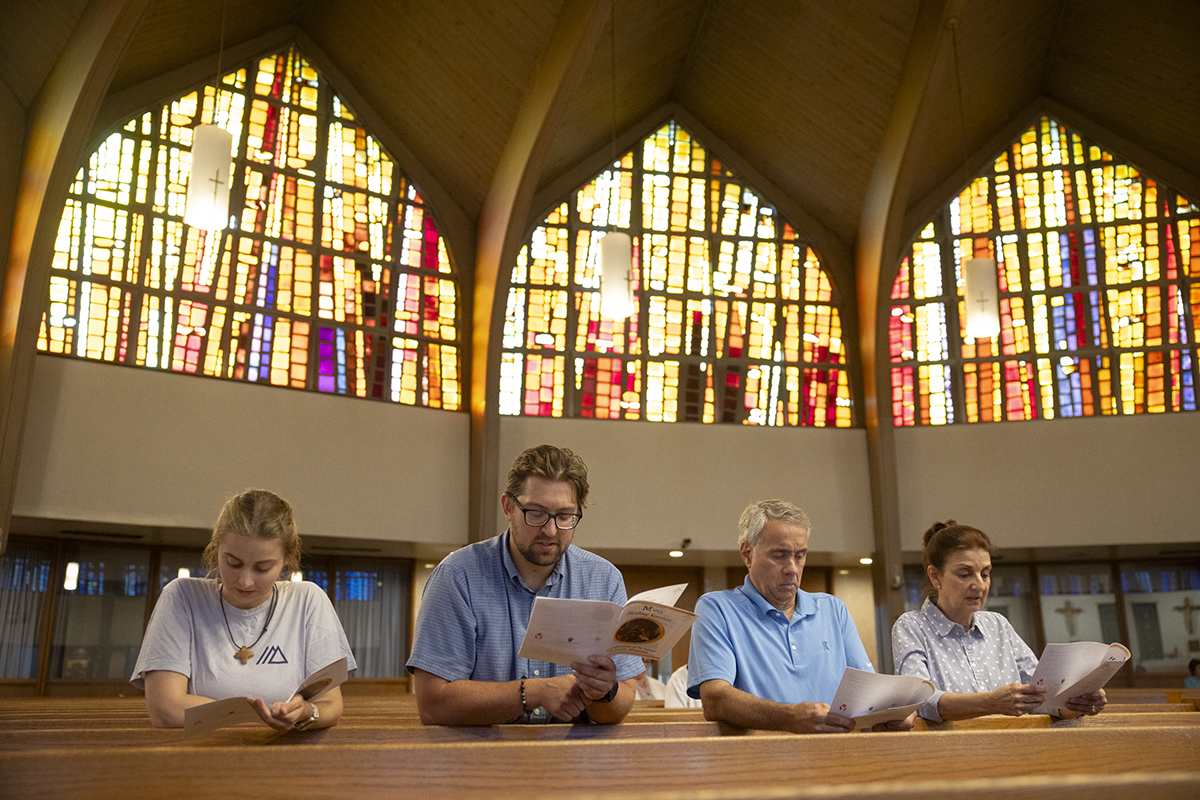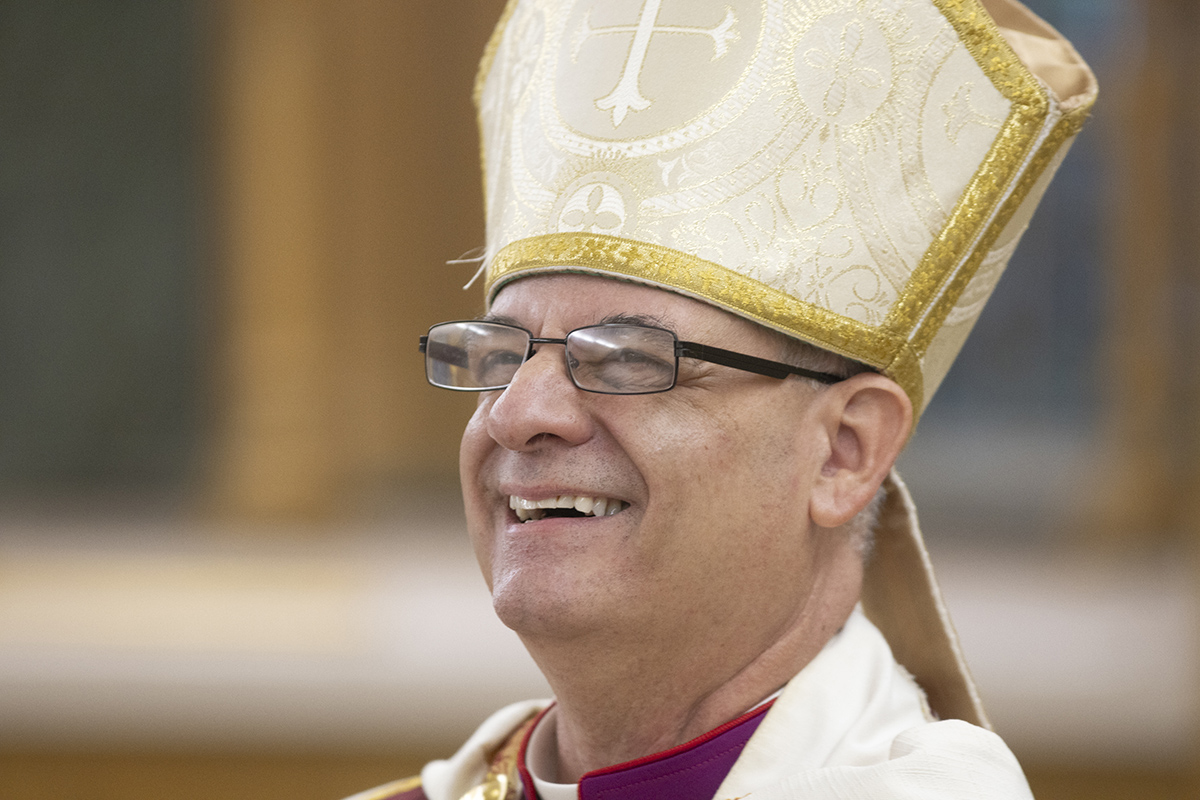New SLU president has a Jesuit homecoming
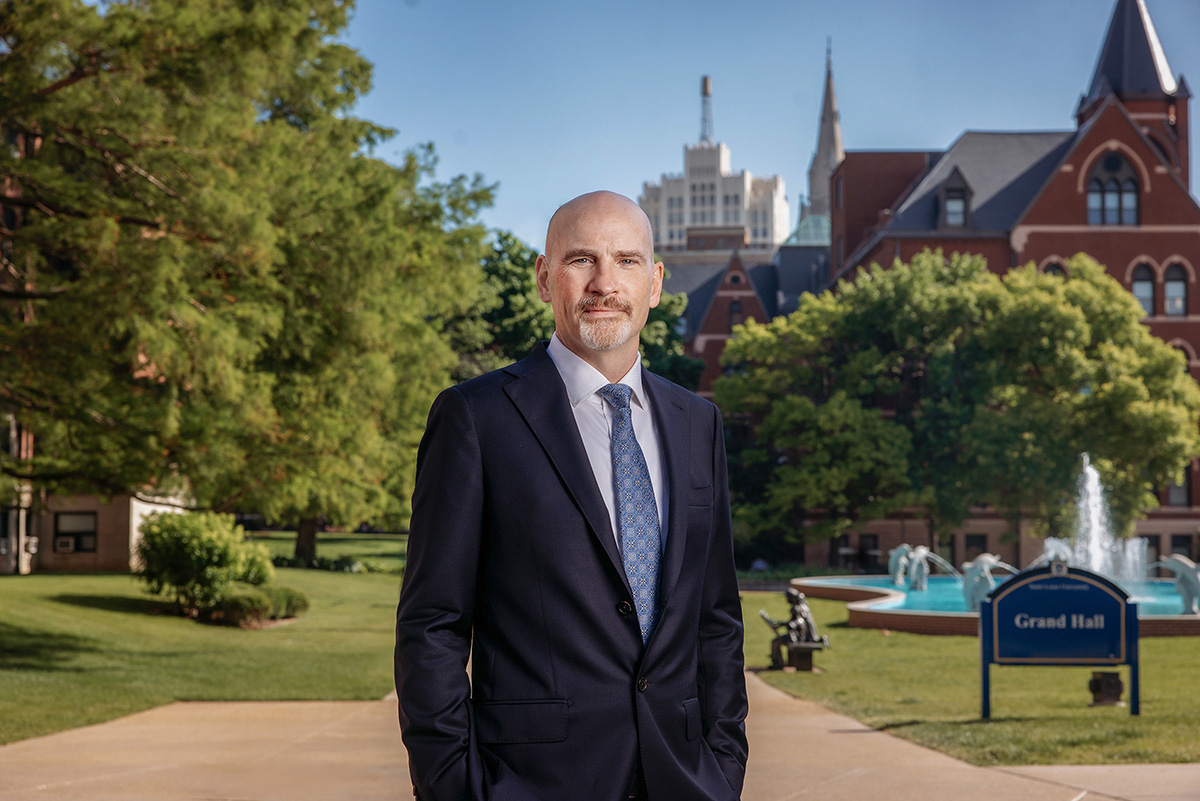
Edward Feser will prioritize research, challenges facing higher education and partnerships with the Church and city
Becoming president of Saint Louis University is a bit of a homecoming for Edward Feser, who began in his role July 1.
While the majority of his academic leadership has been at public and land-grant universities, Feser, 57, was educated at the Jesuit-sponsored University of San Francisco, where he earned his bachelor’s degree. He most recently served as provost and executive vice president at Oregon State University.
He is SLU’s second lay president, succeeding Fred Pestello, who retired this year after serving for 11 years.
Feser spoke about his vision for SLU moving forward, the challenges facing higher education and what he looks forward to in terms of partnerships with the local Church and broader St. Louis community.
What are some of your priorities in the role as president of SLU?
Earlier this year, SLU achieved R1 status, the highest classification that universities can attain for research activity via the American Council on Education and the Carnegie Foundation for the Advancement of Teaching. Feser said he is eager to see the university continue to build upon its research infrastructure.
Feser said he plans to prioritize student success, retention and graduation.The fall-to-fall retention rate for freshmen who entered SLU in 2023 (the latest data available from the university) was 88%, and Feser said would like to see that number continue to increase. Total student enrollment has increased by more than 3,000 students in the past five years, with more than 15,000 enrolled in fall of 2024, the most recent data available.
“If your ultimate goal is access, reducing costs to students and serving students who would not otherwise be able to obtain a degree at your institution, then you have to take a more systemic view of how (to) deliver education,” Feser said. “At SLU, we’ll see where we have some opportunities, and that kind of approach is fully consistent with our Catholic Jesuit mission.”
“My view is every student who matriculates at the university, and certainly in St. Louis, wishes to obtain a degree,” he said. “So when we lose those students and they don’t succeed, especially if they take on debt and leave without a degree, that’s a disaster.”
Higher education is facing challenges across the country with shifting demographics, financial pressures and questions about the value of a degree. How do you think SLU can lead the way in addressing these challenges?
In higher education, “you’re going to see greater diversification of degree type, and in some cases, modality, whether it’s on-site, online or hybrid. You will see more students coming to school who are nontraditional — maybe they’re a little older, maybe they’re transfer students. Historically for institutions like St. Louis, we have centered what we do around the first-time, full-time, traditional undergraduate, and demographically, that population is not growing.”
Meanwhile, there is a growing number of students who have some college experience and no degree, Feser said. “There’s a segment of the population that could use some upskilling, a credential, an alternative degree, a certificate — something that would position them better in a career trajectory or open up a new career,” he said.
Feser said he wants SLU to be more strategic about exploring diverse educational spaces.
“Over time, what you’re going to see in higher ed is finding ways to provide true lifelong learning,” he said. “We will see in higher education actual progress in delivering that vision. I think SLU could be a leader in that.”
How do you hope to balance SLU’s Catholic, Jesuit mission with the realities of competing in an ever-changing higher education landscape?
“When we think about what universities are doing and what we’re teaching students, there’s a lot of focus, especially at secular institutions, on what I call the ‘how’ and the ‘what’ issues,” he said. “What are you learning in your discipline, whether it’s the content, the substance of that discipline or the how one needs to operate in that discipline to be successful.”
As a Catholic, Jesuit institution, Saint Louis University should be leaning into the “why” questions, which ultimately are driven by the Gospel, Feser said.
“What we’re trying to inculcate in students is a deep attention to value of why they are doing what they’re doing,” he said. “We have the capacity to engage in difficult societal questions that require scientific research, and to answer those questions, but still bring the perspective of (Catholic) values and the ethics and the questions of why.”
You’ve said that universities must serve and improve the well-being of their communities. How do you envision SLU developing its relationships with the city of St. Louis?
Feser said that engagement with the city will be another priority. “Unlike companies that come and go, we’re here for the long haul, and so there’s a certain set of relationships to the city that have to do with our simple presence as an employer,” he said. Feser wants to see redevelopment around the Midtown area continue and to engage with the city in supporting other areas of development.
What opportunities do you see for SLU to partner with parishes, schools and other entities in the archdiocese?
Feser said he looks forward to building upon the partnerships that SLU has with the local Church, including the Billiken Teacher Corps, seminarian formation and its partnership with St. Louis Catholic Academy, among others. Educational innovation in Catholic schools and teacher development continue to be priorities at the university, he said.
“As a research university and Catholic school, we can help think about how to deliver Catholic education better,” he said. “I think there are opportunities for our students to take on projects that would represent partnerships with the Catholic Church as well as represent partnerships with the city.”
As Catholic elementary and secondary schools nationwide continue to decline in enrollment, “in some sense, higher education faces some of the same issues,” Feser said. “We’ll contribute as we can to tackling some of those and perhaps providing solutions.”
Saint Louis University President Edward J. Feser
Personal details
Edward J. Feser, Ph.D.
57 years old
Married to Kathy Feser, a school district environmental sustainability coordinator
Two adult children, Jack and Mary
Education
Ph.D., University of North Carolina at Chapel Hill, 1997
M.R.P., University of North Carolina at Chapel Hill, 1994
B.A., University of San Francisco, 1989
Ed Feser will prioritize research, challenges facing higher education and partnerships with the Church and city
Subscribe to Read All St. Louis Review Stories
All readers receive 5 stories to read free per month. After that, readers will need to be logged in.
If you are currently receive the St. Louis Review at your home or office, please send your name and address (and subscriber id if you know it) to subscriptions@stlouisreview.com to get your login information.
If you are not currently a subscriber to the St. Louis Review, please contact subscriptions@stlouisreview.com for information on how to subscribe.

